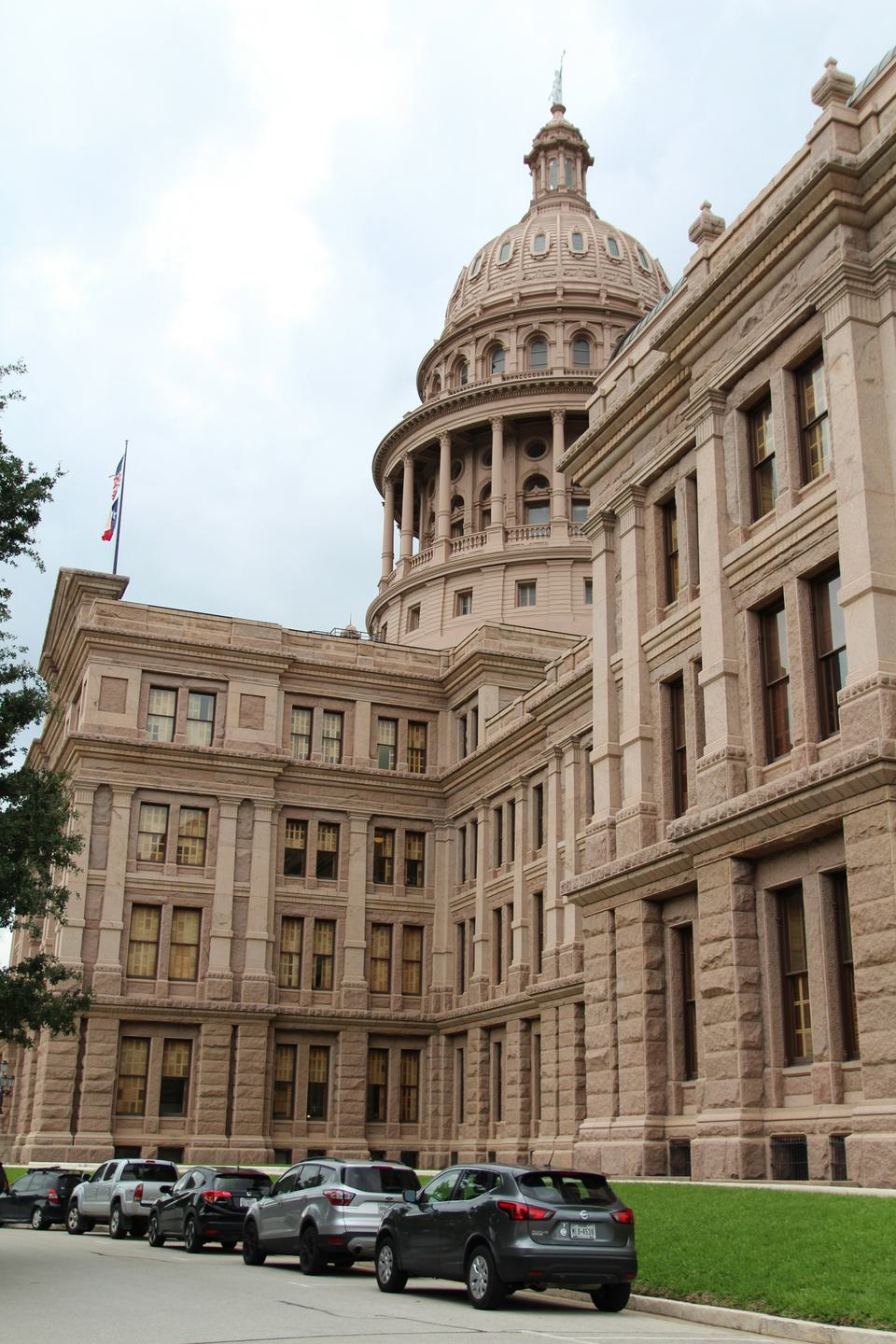The Death Penalty in 2024
Legislation
In 2024, death penalty-related legislation was enacted in at least six states to limit use of the death penalty, alter execution methods and protocols, modify procedures, and increase secrecy. Death penalty abolition efforts continued in more than a dozen states, and 2024 also saw failed efforts to reintroduce the death penalty in eight states.

In 2024, death penalty-related legislation was enacted in at least six states (California, Delaware, Louisiana, North Carolina, Tennessee, and Utah) to limit use of the death penalty, alter execution methods and protocols, modify procedures, and increase secrecy. Death penalty abolition efforts continued in more than a dozen states, and 2024 also saw failed efforts to reintroduce the death penalty in eight states where it is currently illegal. Only one effort to expand the use of the death penalty to non-homicide crimes was successful.
Legislation to Formally Abolish the Death Penalty
On September 26, 2024, Delaware Governor John Carney (D) signed HB 70 into law, formally amending Title 11 of the state’s code to remove the death penalty and replace it with life without parole as the most severe punishment for first-degree murder. Delaware’s Supreme Court found the state’s death penalty statute unconstitutional in 2016, invalidating it for future use and effectively abolishing capital punishment in the state. Delaware is not the only state to legislatively repeal the death penalty years after abolishing it legally. Last year, Washington enacted SB 5087, amending its constitution to align with the state supreme court’s ruling in State v. Gregory (2018), which declared its death penalty statute unconstitutional because it was applied in an arbitrary and racially discriminatory manner.
Since 2022, death penalty abolition bills have been introduced in at least 17 other states1 and at the federal level. Of note are two pending abolition bills in Ohio, SB 101 and HB 259, which have bipartisan support. Ohio’s two-year legislative session will end on December 31, 2024. Earlier this year, the Ohio Senate Judiciary Committee held its third hearing this fall to discuss SB 101, and HB 259 had two hearings in House Finance Committee in 2023. Bill sponsor Republican Senator Steven Huffman said, “Now is the time to abolish the death penalty in Ohio as a majority of Americans favor life without parole options rather than capital punishment.”
Legislation to Limit Use of the Death Penalty

California State Capitol
Photo by Tony Webster
The United States Supreme Court’s decision in Atkins v. Virginia (2002) declared people with intellectual disabilities ineligible for the death penalty. But the laws and procedures of many states make it possible for executions of members of this vulnerable group to continue. California is the latest state to codify the Atkins decision, with the passage of SB 1001 on September 28, 2024, making those with intellectual disability statutorily ineligible for the death penalty. In passing the bill, the legislature made clear that California “does not wish to risk the execution of a person with an intellectual disability.” In the last two years, however, similar bills in Texas and Georgia to protect people with intellectual disability have failed. In 2023, HB 381 in Texas sought to modify the procedure for determining intellectual disability in capital cases and align the state’s definition with clinical standards. It passed the Texas House but failed in the Senate. In 2022, HB 1426 sought to modify Georgia’s much criticized and unique standard of proof from “beyond a reasonable doubt” to a “preponderance of the evidence,” in line with most other states’ standards. The bill failed to even receive a single vote.
The mental competency of individuals facing a death sentence also continues to be a focus for state legislators. Despite longstanding concerns from national mental health organizations, the Supreme Court has not prohibited the death penalty for people with severe mental illness. Only two states, Kentucky and Ohio, have laws limiting death penalty eligibility for people with this condition. Over the past two years, similar bills have been introduced but have failed to pass in Arkansas, Florida, South Dakota, Tennessee, and Texas.
A few states have moved recently, albeit unsuccessfully, to change death penalty eligibility for persons who did not directly cause the death of a victim. Introduced in 2024, Arizona’s SB 1422 sought to repeal the state’s felony murder rule and allow anyone convicted under the existing felony murder law to be resentenced. The bill failed to pass, as have similar efforts in other states, including a recent attempt in Texas. In 2023, Texas HB 1736 unsuccessfully sought to modify Texas’ “law of parties” statute to limit the death penalty only to instances where the defendant is a “major participant” in the capital murder and behaved with “reckless indifference to human life.”
Legislation to Reinstate or Expand Use of the Death Penalty
In 2024, death penalty reinstatement bills were introduced in at least eight states (Hawaii, Illinois, Iowa, Maryland, New Jersey, New Mexico, Virginia, and West Virginia) but largely failed to receive substantial support or action, consistent with trends in recent years. At the same time, legislation seeking to expand the use of the death penalty to certain non-homicide, sex-related crimes experienced greater interest; one bill was enacted this year, in Tennessee.
In 2023, Florida made sexual battery of a child under the age of 12 a death-eligible offense (see HB 1297). Its enactment sparked the introduction of similar legislation seeking to make certain non-homicide, sex-related crimes involving children death-eligible offenses in at least six states (Idaho, Missouri, Pennsylvania, South Carolina, South Dakota, and Tennessee) and the federal government. In 2024, only one of these bills passed. Signed by Tennessee Governor Bill Lee (R) on May 9, 2024, SB 1834 makes rape of a child, aggravated rape of a child, or especially aggravated rape of a child death-eligible offenses. Tennessee and Florida are now the only states that permit the death penalty for non-lethal crimes in violation of U.S. Supreme Court precedent established in Kennedy v. Louisiana (2008) and international law’s “most serious offense” standard.

Tennessee Statehouse
Photo by F McGady
The remaining bills permitting the death penalty for non-homicide crimes introduced in Idaho, South Carolina, South Dakota, and the federal government all failed. HB 405 and HB 515 in Idaho sought to make lewd conduct with a minor under 12 years of age a capital offense. HB 109 in New Mexico sought to make aggravated criminal sexual penetration and criminal sexual penetration of a child capital offenses, as well as human sexual trafficking of minors a capital offense. H4669 in South Carolina sought to permit the death penalty for those convicted of criminal sexual conduct with a minor under 11 years of age. H1192 in South Dakota would have made the rape of a child 12 years of age and under a capital offense. Federal bill HR 7955 sought to make possession of child pornography a capital offense and HR 7957 sought to make a number of crimes involving children capital offenses, including trafficking, exploitation, and sexual abuse. Also introduced in 2024, Kentucky’s HB 198, which sought to include various sex-related abuse of a victim’s corpse as aggravating factors, failed to pass.
Legislation to Modify Execution Protocols
Bills allowing suffocation by nitrogen gas as an execution method were introduced in at least five states (Alabama, Kansas, Louisiana, Nebraska, and Ohio) this year. All but LB970 in Nebraska were introduced following Alabama’s unprecedented use of nitrogen gas in January to execute Kenneth Smith. Following Mr. Smith’s execution, Alabama’s HB 248 was introduced, seeking to remove “nitrogen hypoxia” as an execution method, but that bill did not stop Alabama’s two subsequent executions using nitrogen gas.
There are dueling bills pending in Ohio’s Government Oversight Committee regarding the use of nitrogen gas. HB 392 seeks to add suffocation by nitrogen gas as a method of execution, and although prisoners would be asked to choose their preferred method, nitrogen gas would be used if lethal injection was unavailable. HB 589, which would prohibit the use of nitrogen gas as an execution method, was introduced in response.
In a special session this year, Louisiana passed HB 6, which added both nitrogen hypoxia and electrocution as alternative execution methods to the existing method of lethal injection. Governor Jeff Landry signed HB 6 on March 5, 2024. Before the law went into effect on July 1, 2024, a second bill, SB 430, sought to remove nitrogen hypoxia as an authorized method of execution. This effort was supported by a coalition of Jewish activists, who said, “The use of poison gas for state-sanctioned execution unmistakably and immediately evokes for millions of American Jews horrific memories of the depravities our ancestors suffered at the hands of Nazi Germany, where lethal gas was used to mass murder our people.” On April 22, 2024, SB 430 passed in the Senate with a vote of 22 to 16 but failed to pass out of committee in the House.
In Kansas, SB 534 would have added nitrogen hypoxia to the state’s execution options but the bill died in committee when the session closed on April 30, 2024.
Legislation to Criminalize Victim Family Contact

Jeff Landry
Photo by Gage Skidmore
Louisiana’s HB 734, signed into law on March 22, 2024, with an effective date of August 1, 2024, now prohibits death-sentenced prisoners and their family, friends, and legal representatives, or anyone purporting to represent the “interests” of the prisoner, from directly contacting any victim’s family member in connection with clemency proceedings. All contact now must be arranged through a victim’s service coordinator appointed by the state, and anyone who violates this provision may be “fined not more than five thousand dollars, [and] imprisoned for not more than three years, with or without hard labor, or both.” This legislation appears to be a response to the coordinated mass clemency campaign that Governor Landry bitterly opposed during 2023 when he was still Louisiana’s Attorney General.
Legislation to Increase Execution Secrecy
LB 980 in Nebraska attempted unsuccessfully to add two legislative officials as execution witnesses. Louisiana’s HB 6 (see above) also made records pertaining to executions confidential, adding to existing layers of secrecy surrounding Louisiana’s executions. Months before its first execution in 14 years, Utah enacted SB 109 on February 16, 2024, prohibiting the disclosure of execution-related information and records, specifically the identities of those involved in executions, including corrections staff, and drug and medical suppliers.
-
Arizona, Florida, Illinois, Kansas, Kentucky, Louisiana, Missouri, Nebraska, New York, North Carolina, Ohio, Oregon, Pennsylvania, South Carolina, South Dakota, Texas, Utah. Asterisks indicate states that have already abolished the practice but where the legislatures have sought to update statutes to bring them in line with practice.↩︎

